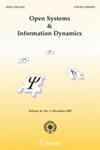多部开放量子动力学的碰撞模型简介
IF 1.6
4区 物理与天体物理
Q3 PHYSICS, MATHEMATICAL
引用次数: 6
摘要
量子碰撞模型是描述开放量子系统动力学的一种有用的方法,它通过系统与环境中某些粒子(通常称为“副粒子”)之间的重复相互作用来描述开放量子系统的动力学。本文综述了由多个子系统组成的多部开放量子系统动力学的主要碰撞模型。特别地,我们感兴趣的是基于子系统和分支之间的基本碰撞的模型,以及在无穷小时间步长的极限下模拟全局和/或局部马尔可夫主方程的模型。在讨论了基于一般碰撞的主方程推导的数学细节之后,我们提供了基于多部系统碰撞模型的一般思想,我们讨论了它们的优势和局限性,并展示了如何在量子计算机上模拟它们。在此基础上,分析了基于纠缠轨迹的碰撞模型的一些性质,推导了小时间步长的主方程,并证明了该主方程的系数受约束,限制了其通用性。最后,我们给出了一个双模压缩热态下两个玻色子副色子纠缠的碰撞模型的例子。本文章由计算机程序翻译,如有差异,请以英文原文为准。
A Brief Journey through Collision Models for Multipartite Open Quantum Dynamics
The quantum collision models are a useful method to describe the dynamics of an open quantum system by means of repeated interactions between the system and some particles of the environment, which are usually termed “ancillas”. In this paper, we review the main collision models for the dynamics of multipartite open quantum systems, which are composed of several subsystems. In particular, we are interested in models that are based on elementary collisions between the subsystems and the ancillas, and that simulate global and/or local Markovian master equations in the limit of infinitesimal timestep. After discussing the mathematical details of the derivation of a generic collision-based master equation, we provide the general ideas at the basis of the collision models for multipartite systems, we discuss their strengths and limitations, and we show how they may be simulated on a quantum computer. Moreover, we analyze some properties of a collision model based on entangled ancillas, derive the master equation it generates for small timesteps, and prove that the coefficients of this master equation are subject to a constraint that limits their generality. Finally, we present an example of such collision model with two bosonic ancillas entangled in a two-mode squeezed thermal state.
求助全文
通过发布文献求助,成功后即可免费获取论文全文。
去求助
来源期刊

Open Systems & Information Dynamics
工程技术-计算机:信息系统
CiteScore
1.40
自引率
12.50%
发文量
4
审稿时长
>12 weeks
期刊介绍:
The aim of the Journal is to promote interdisciplinary research in mathematics, physics, engineering and life sciences centered around the issues of broadly understood information processing, storage and transmission, in both quantum and classical settings. Our special interest lies in the information-theoretic approach to phenomena dealing with dynamics and thermodynamics, control, communication, filtering, memory and cooperative behaviour, etc., in open complex systems.
 求助内容:
求助内容: 应助结果提醒方式:
应助结果提醒方式:


